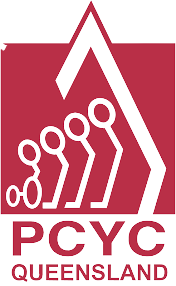PowerWells Empowers Remote Queensland Communities with STEM
PowerWells, in partnership with Police-Citizens Youth Clubs (PCYC) Queensland, has successfully completed an innovative STEM education project across four remote First Nations communities in Queensland. This initiative, funded by the Australian Government Maker Projects - Community STEM Engagement grants, has made a significant impact on young people's lives and their communities.
Project Reach and Impact
The project engaged over 470 young people from Napranum, Woorabinda, Palm Island, and Yarrabah in hands-on STEM workshops and activities. These communities, some of which rank among the most disadvantaged in Australia, saw their young people create 425 solar energy devices and repurpose over 730 kg of electronic waste.
Key Achievements
Workshops: 37 in-person workshops were conducted, exceeding the initial target of 32.
Participation: The project reached 470+ young people, surpassing the original goal of 270.
Device Creation: Participants built 425 STEM kits, including solar power banks and home solar systems.
Community Impact: Several households without on-grid power received home solar systems built by the young participants in the workshops facilitated by PowerWells.
Community Partnerships
The project's success was amplified through strong collaborations with the local schools and the PCYC branches:
Kluthuthu College (Napranum)
Yarrabah State High School
Woorabinda State High School
Wadja Wadja School (Woorabinda)
Bwgcolman Community School (Palm Island)
Testimonials
Vernon Clark, Principal of Kluthuthu College (KCC), in Napranum praised the project:
“KCC has had the privilege of attending workshops conducted by PowerWells at PCYC and were impressed by the professional quality of the presentation and, more importantly, by the way the students were engaged in creating a solar product. The fact that the student’s built Power Banks and Solar Systems by converting Electronic Waste into Solar Power Lights used for Device Charging is another factor that compels our support.
As STEM is an approach to learning and development that integrates the areas of science, technology, engineering and mathematics, these STEM explorations support children to develop skills that are most critical to 21st century learning, including problem-solving, collaboration, innovation and critical thinking. The success of this project will not only greatly benefit the community of Napranum, but also the teaching and learning program offered at Kluthuthu Christian College.”
Sergeant Leigh Oakley from PCYC Woorabinda added:
"This organisation is remarkable for its innovative solution to reuse e-waste, providing essential light and power to remote communities while fostering education and sustainability... Your work is making a difference, and we are proud to have been a part of this incredible initiative."
Long-term Impact
This project has not only provided immediate benefits to the communities involved but also paved the way for future opportunities:
Energy Literacy: Improved understanding of renewable energy among young people in remote communities.
Career Pathways: Exposed participants to potential careers in STEM and renewable energy sectors.
Environmental Sustainability: Demonstrated practical applications of recycling and repurposing electronic waste.
Community Empowerment: Directly benefited households without access to grid power through the installation of solar systems.
As Australia moves towards its Net Zero targets, projects like this are crucial. With 43% of clean energy projects needing to take place on or near First Nations communities, PowerWells and PCYC are at the forefront of preparing the next generation for this important work.
Through this successful collaboration, PowerWells and PCYC have demonstrated the power of hands-on STEM education in creating positive change and opening new possibilities for young people in remote First Nations communities.

